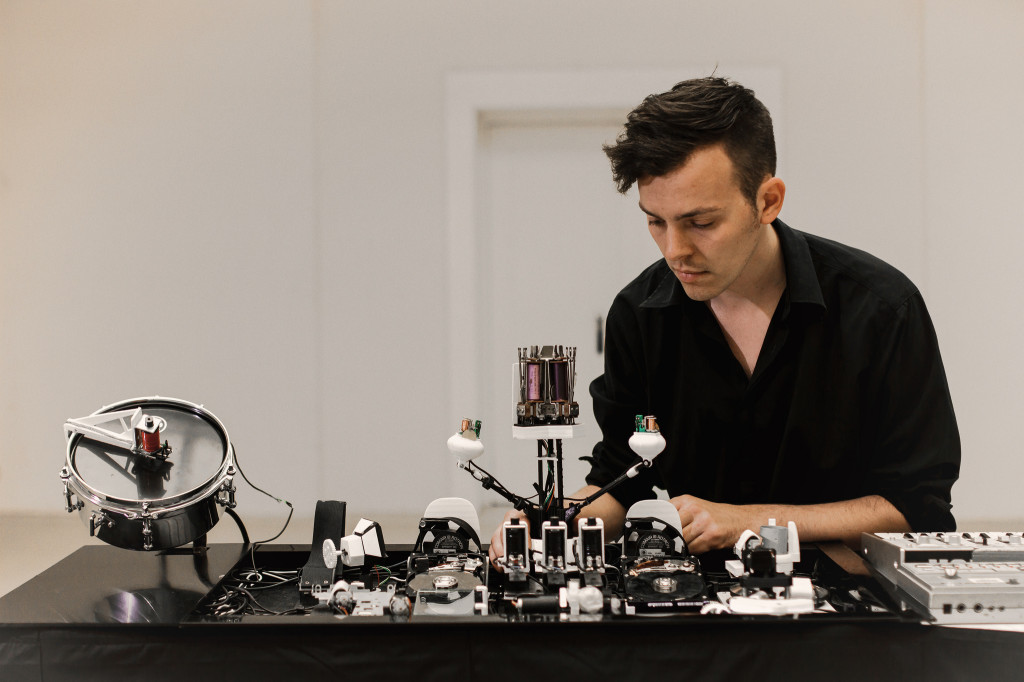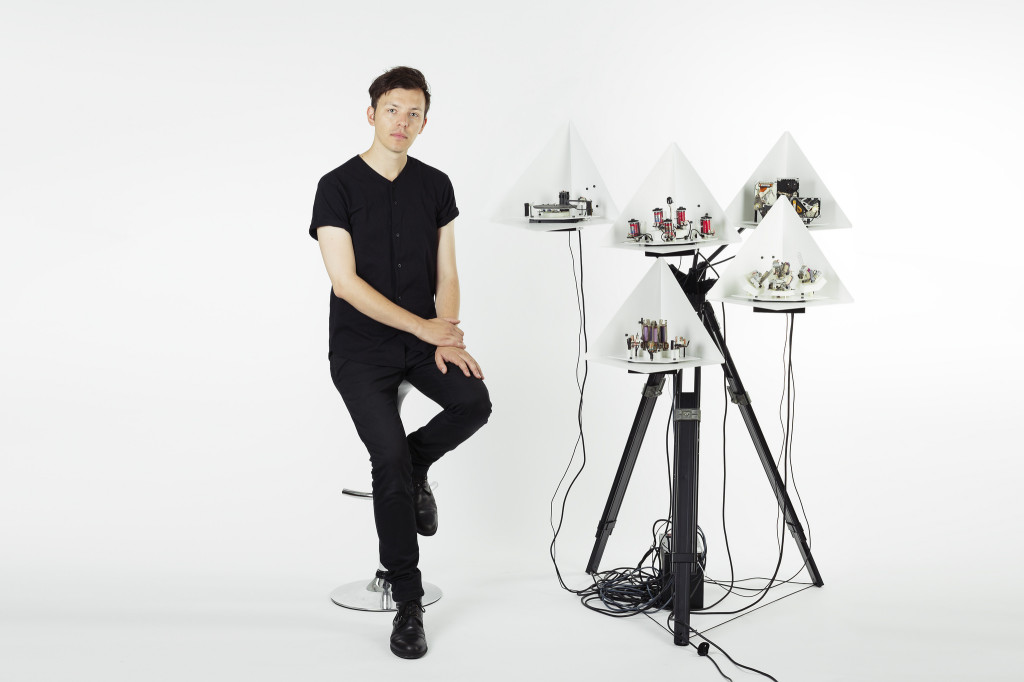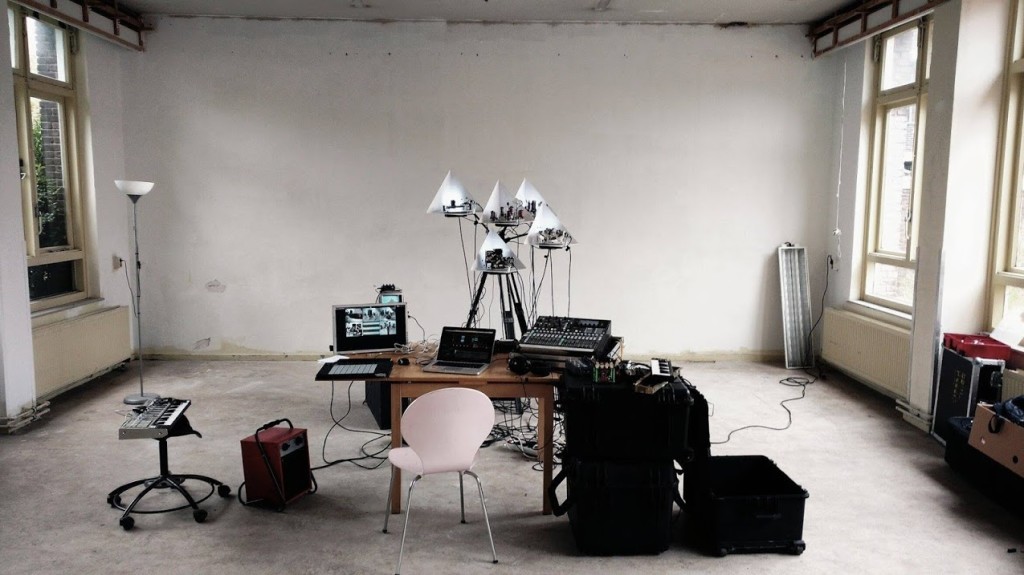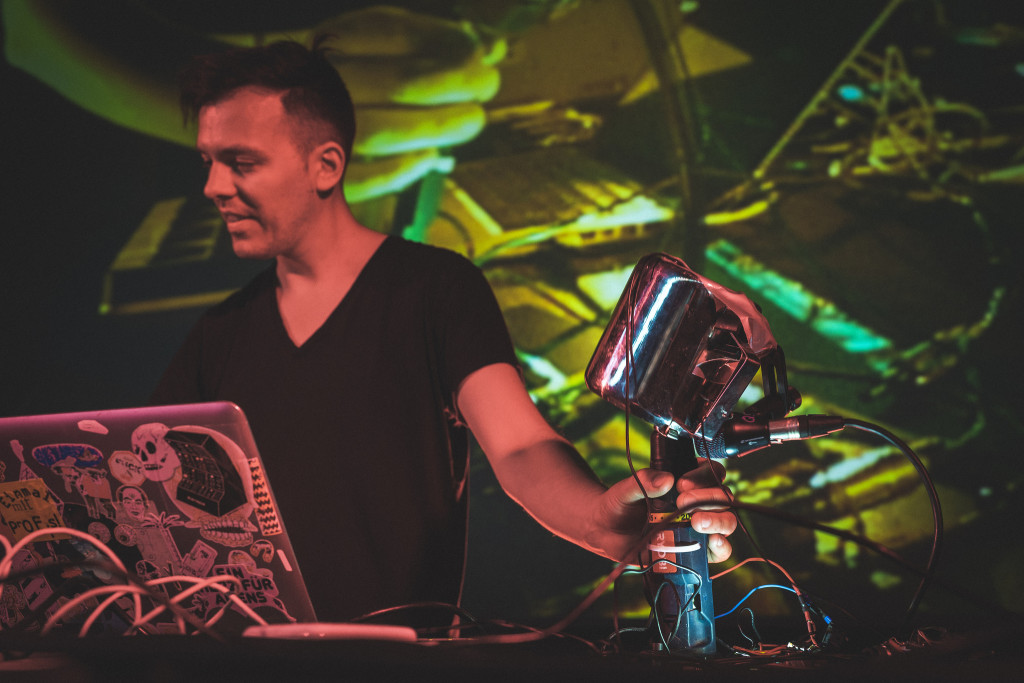Roboticist, composer, and futurist Moritz Simon Geist has made an entire album using robotic machines. It’s stunning to behold – and he tells you all about how it developed. Let’s watch:
This is more than a gimmick: there’s a real difference in approach and process here. Moritz’s work is truly mechanical-acoustical and electro-acoustic, using mechanical, kinetic machines to produce sounds.
And Moritz has been working on this background for some time, including making an entire oversized TR-808 drum machine that replicates sounds not with analog circuitry or digital code, but by actually hitting percussion. (The claps even required a cluster of stuff to clap together.)
An extended making-of video walks through the behind-the-scenes process of how this came about and evolved.
It’s as much an exercise in kinetic sculpture as music, but then the album organizes those raw materials in an eminently listenable, musical manner. It’s quirky grooves, true to its mechanical-robotic nature – that is, even if you didn’t know what this was, you might quickly imagine dancing bots. The materiality comes through, in subtly off rhythms and precisely-placed organic sounds.
Moritz’ ongoing collaborators Mouse on Mars co-produced both an EP (“The Material Turn”, out October 12) and LP (“Robotic Electronic Music”, on November 16). And Moritz extends the musical role here, by being both inventor/builder/maker and musician – not to mention label head.
It’s great to see Moritz starting a new label devoted to this medium – Sonic Robots Records – but also getting the help not only of Mouse on Mars but legendary German label Kompakt to handle global distribution.
You can preorder the EP already, in both digital and vinyl forms:
… with the LP to follow soon.
Here’s our look at how Moritz is working with Mouse on Mars:
Here’s how Mouse on Mars are using robots to expand their band
And here’s how we first got to meet Moritz, through his robotic TR-808:
A Robotic, Physical 808 Machine Advances Weird Science of Music, Tech Alike
Want to try making your own robotic music? Dadamachines is an easy way to start, and you can explore sound and musical arrangement without having to know about the building side right away:
dadamachines is an open toolkit for making robotic musical instruments
Don’t miss Moritz’ talk, too, for our MusicMakers Hacklab this year, discussing speculative futures for machine learning:
https://moritzsimongeist.bandcamp.com/album/the-material-turn
Some images, too, of his creations and live setup:



